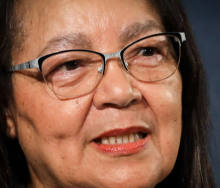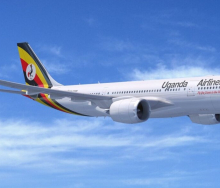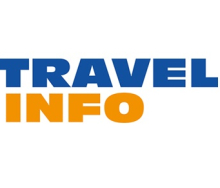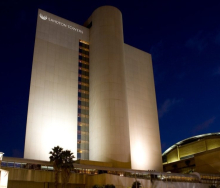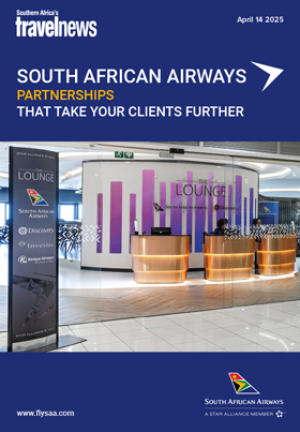Airlines are required to become more sustainable in the very near future. Governments and corporate organisations are working hard to reduce their carbon footprint and to make a difference when it comes to global climate change. Now, all travellers and their travel advisers have no choice but to get involved.
Sure Travel CEO, Vanya Lessing, who recently attended the Virgin Insights discussion in London, said this was the message and it was a very clear one.
“Airlines are all looking for ways to reduce their emissions and run cleaner fleets. At some point it will be the responsibility of the consumer to contribute to the effort. Travel agents need to be aware of what is available to guide their clients and make them aware now of how they can offset their travel and become more responsible.”
According to the International Council on Clean Transportation (ICCT), global CO₂ from commercial aviation was 707 million tons in 2013. In 2019 that value reached 920 million tons, an increase of 30% in six years. The consensus is clear, travelling by air is bad for the environment. Aircraft create tons of pollution, which has made them the target of concern and criticism among ecologists and green-savvy travellers.
Airlines in Europe are already restricting journeys of less than two hours and forcing travellers to go by train instead. A third of the world’s airlines are encouraging their passengers and corporate customers, to ‘neutralise’ their proportion of an aircraft's carbon emissions on a particular journey by investing in carbon-reduction projects.
“Carbon offsetting is becoming extremely important in the corporate environment and the travel industry needs to gen up now and understand how it works,” said Lessing.
What is carbon offsetting?
Travel agents need to understand this principle to be able to field questions from clients and give informed advice.
When you buy a carbon offset, you're buying a commitment from a company or organisation to remove a certain amount of greenhouse gases from the atmosphere. Carbon offsets are designed to compensate for the emissions attributed to that passenger during air travel. The more you fly, the more you pay. Carbon offsets might include planting trees or rolling out renewable and fuel-efficient energy resources for those who might not have easy access to them. Improved cooking solutions, safe water access, and efficient lighting projects not only reduce emissions but also help clean the air and improve health and living conditions.
Many airlines allow their passengers to offset directly with the airline when they book a flight on the airline’s website. The passenger pays an extra fee on top of the flight cost which is donated to a carbon offset scheme.
An innovation from Amadeus is a pilot project being run in the South African environment which will allow Amadeus-using agents to purchase carbon offsets for their clients through its GDS ‘Productivity Tracker’ solution.
Travel News spoke to Andy Hedley, Managing Director of Amadeus Southern Africa.
“Amadeus agents will be able to offer a certified carbon credit purchase to their clients through the GDS. The traveller or corporation would purchase carbon credits, as ratified by Gold Standard. Gold Standard, initiated in 2003 by a group of NGOs including WWF, is a certification standard for carbon offset projects. The Gold Standard ensures that energy efficiency and renewable energy projects actually reduce greenhouse gas emissions, and provide benefits to local populations.
“The market targeted for the initial launch of carbon offsetting options within Productivity Tracker is South Africa, with a pilot user doing the testing. The idea is to take the product to a wider market release once the pilot has been finalised,” said Hedley.
How does Amadeus facilitate the payments and who do they go to?
“We work with technology partners that source and manage the purchasing of CO₂ offsets on behalf of TMCs. Productivity Tracker calculates the volumes based on a corporation’s travel over a monthly schedule. It then reports the TMC-generated volumes and values. The TMC can decide on a percentage of value or a flat rate service fee with minimum and maximum limits, which is built in to the cost of facilitating the product and monthly reporting. The report information is used for invoicing the agent’s individual customers. Our technology partner then invoices the TMC for the monthly value and once paid, the CO₂ offsets are purchased with proof of purchase lodged against each transaction through Productivity Tracker.”
Added Hedley: “More broadly, we’re also working with other partners such as CHOOOSE and CarbonClick to integrate their offering into the Amadeus ecosystem so that travellers and travel agents using Amadeus solutions can seamlessly purchase carbon offsets or removal solutions aiming at mitigating the carbon emissions associated with a given trip – whether that be flights, a train journey, a hotel stay or all of the above.” (CHOOOSE describes itself as a platform that provides tools for integrating climate action into any customer experience – through automated emissions calculations, dynamic sustainability scores, a vetted marketplace of carbon removals and offsets, and climate programme reporting. CarbonClick describes itself as empowering businesses and their customers to tackle climate change by making carbon offsets simple, trustworthy and cost effective.)
“Offsetting carbon emissions through CO₂ offsets offers a practical and already available option for travellers to get involved in mitigating the impact of their trips and supporting sustainable initiatives,” said Hedley.


